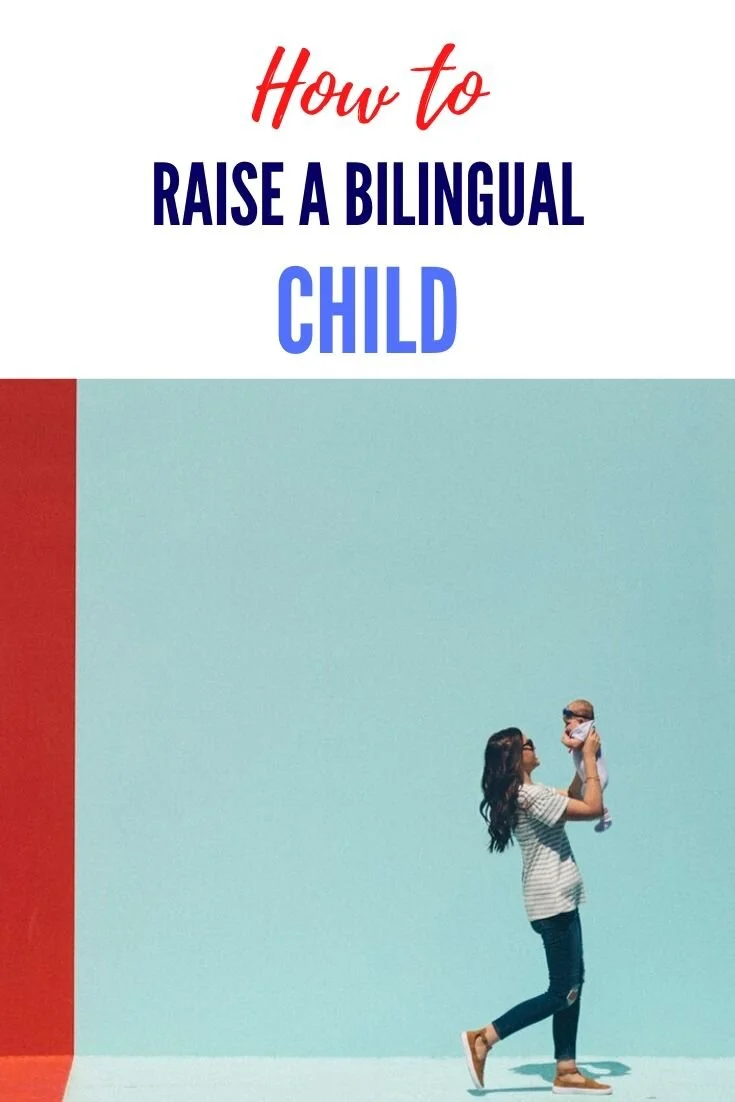How to begin your child's bilingual education
/The topic of raising Bilingual Children is how Mammaprada all began. We don't profess to be experts, we are simply parents hoping to pass on the best of our dual heritage to our children and to give them, in our eyes the benefit of two languages.
We’ve raised both of our children with English and Italian from birth. They are now 8 and 4 years old. They are both bilingual for their age groups but are still learning new vocabulary for each language naturally every day. This is through us speaking to them in our native languages and using simple methods you can try at home such as having some words of the day.
We try to be completely honest with parents similar to us as this is not an easy route. However, we have accomplished this, or rather our children have. Which means you can too and if we could go back, we would absolutely do it all again.
Teaching your child another language can be done just within your family or with support. Given we all lead such busy lives there is no harm in getting help from a tutor. If you would like to try and find one Tutor Map can locate someone local to you or online.
Credit: Unsplash, @jontyson.
When to start?
The best time to start speaking additional languages to your child is always now. It doesn’t matter if you think you are too late or you have a tiny baby. Don’t put it off because relatives tell you children start speaking properly at two years old. Or because you think a baby won’t understand.
Children absorb everything around them. A baby of a few weeks old will be able to distinguish which sounds precede a particular action even when two parents use different sounds.
Though you may worry about how other family members feel about you teaching your child another language, many are delighted and very supportive.
This grandmother is encouraging her bilingual granddaughter to thrive with both Dutch and English.
Does age matter?
Learning as you get older, though not impossible does get harder. This does not mean that it’s too late or you can’t start to teach your child a language, or encourage their learning.
When you’re a small child and people speak to you in another language, you don’t question it you just listen and note when those around you use particular words and what you think they mean. After a while you know that a certain phrase means one thing or another.
As you grow older you have your own ideas about what is fun, what you feel like learning and how much effort you are prepared to put into a topic. This is where language learning becomes more difficult for an older child. Not because it’s impossible but because your child needs to desire to learn.
Credit: Unsplash; @gaellemarcel.
The key is to ignite their passion for your second or third language. To do this to focus on the parent whose native language is in the minority. This means the language which your child is exposed to the least.
Ideas which work well are to forget teaching your child words at first and to concentrate on learning about the country where the language is from. What does your child know about the place of the minority language? Can you teach them about the country, food, festivals and your memories? Often creating a scrapbook from your childhood. Cooking an authentic meal together or having your own festival at home inspires you both. If you can create some magic around your customs, traditions, stories from home; your child will be more interested in speaking your language too.
We did this with my son around age 5 when he was suddenly aware he was different from his friends having an Italian father. I created a Venice carnival playdate for him and his friends. We made masks, ate Chiacchiere (a festival biscuit) and turned the coffee table into a gondola! It dramatically changed how he felt about Italian and his fascination grew. YouTube is also a great resource for showing different parts of the world to your children.
It’s a marathon
If you are considering raising a child bilingually you have to be in it for the long haul. Consistency is key to whatever you do and it will take a long time to see results. Sometimes you won’t see the progress you expect and will wonder what you're doing wrong. The answer is probably nothing.
If you were to embark on becoming fluent in a language now, how much time would you expect it to take? It’s no different for your child. So relax and just keep going.
It's remarkable how quickly and early a baby will understand two languages even though they can't speak. If you consistently only speak your language to your child they will understand that you call something a 'nose' and daddy calls it 'naso'. This means their little brains are already adapting to become bilingual as they don't see objects as having a fixed name.
Hold on to these little victories because there will be other times when you speak to them in the minority language and they will answer back in the community language (from their school/ nursery). It doesn’t mean they don’t remember this additional vocabulary they just aren’t comfortable using it yet.
Even children whose parents both speak the same language at home, often find theY do not speak the minority language fluently until around age 4. This is due to them having more exposure to the community language from nurseries, school, playdates and friends.
It also shows how long it can take to see results even if you are speaking to them in two languages from birth.
Credit: Unsplash; @hannahwrightdesigner.
Why does it matter?
Now you know it can take time, how important is it to try and teach your child another language? If you're the English side of the parenting team and you live in London it may not seem a big deal.
However, an Italian friend told me recently that she needs her child to learn Italian so they can communicate in a way that conveys her most natural self. Given that this lady is super fluent in English it shows how important feeling understood is to all of us.
Imagine trying to be yourself in another language, try telling a joke for example. Are you usually funny, bubbly, do you have a dry sense of humour? Could you convey that in a second language? It's very hard. Just knowing a language is not enough, you have to feel it's part of you.
Would your children fully understand your background, culture and what makes you who you are without the language?
Lastly teaching your child about another place, culture and language does more than teach them new words. It opens their minds to the possibility that we are all human, each with our own beliefs, customs, foods, celebrations. We are not so different from each other in how we try to give our lives meaning.







































